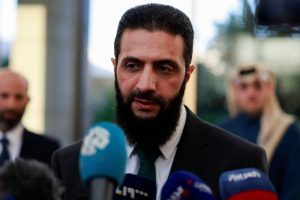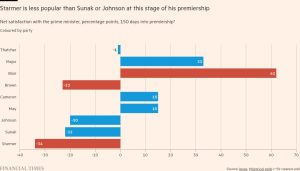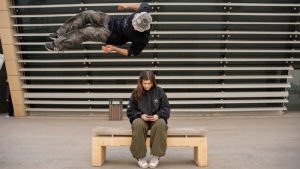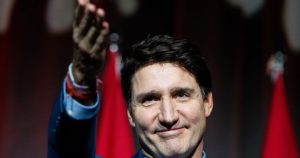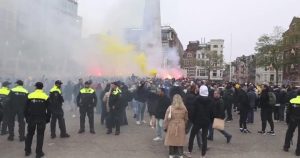How South Korea’s army was rattled by president’s martial law order
Thirty minutes after South Korean President Yoon Suk Yeol declared martial law, the anti-terror special forces that he dispatched to seize parliament hit a problem: their transport helicopters were not allowed into a nearby military no-fly zone.
The resulting 40-minute delay in their arrival meant lawmakers were able to get into the legislative building and vote against the martial law decree, Kim Jong-dae, previously a lawmaker from a minority party, told South Korean television on Thursday.
The confusion, attributed to a lack of communication between the martial law commanders and the air force leadership, was indicative of the helter-skelter nature of Yoon’s shortlived attempt to impose martial law.
“The extremely chaotic miscoordination among top military and police officers helped protect our democracy from Yoon’s self-coup,” Kim told domestic media.
While in 1979, army general Chun Doo-hwan needed just nine hours to orchestrate a coup that helped him seize control of South Korea for eight years, nearly 40 years later, Yoon faces political ruin, and possibly prison, after rescinding his declaration of martial law within just six hours.
South Koreans are piecing together why the country’s military — permanently on a war footing because of the North Korean threat and highly trained in establishing and maintaining martial law — was unable or unwilling to execute the president’s audacious orders.
Statements from leading politicians and senior military leaders, and interviews by local broadcasters and the Financial Times, depict a narrow operation that was poorly executed from the start.
At the heart of this week’s events is what is known as the “Chungam faction” consisting of Yoon and contemporaries from school and the military academy — defence minister Kim Yong-hyun, army chief Park An-su, army special forces chief Kwak Jong-geun, commander Lee Jin-woo and the defence counter-intelligence commander Yeo In-hyung. The exact role they played on the night is still being unpacked.
Senior officials have blamed Kim, who has been replaced as defence minister, for the decision to dispatch troops. Park, who was placed in charge of the sudden declaration of martial law and in whose name the emergency decree was issued, told a parliamentary hearing that he “found out about the martial law declaration watching Yoon’s press conference” and was not fully aware of the content of the decree.
Beyond these few close advisers, no one in the senior military command or political leadership appeared to have been given time to prepare to effectively place the country under martial law. The erratic planning appears to have resulted in delays which were crucial to the plot’s failure.
Nor was the US government given advance warning, despite a deployment of about 25,000 American troops in South Korea to defend against attacks from North Korea, according to people familiar with the matter.
Diplomats, former military officials and analysts in Seoul reviewing the six-hour period of martial law pointed to signs of “soft-pedaling” by those tasked with carrying out orders on the ground.
Chun In-bum, a retired lieutenant general in the South Korean army, described the implementation as “nonsensical” and believed the broader military leadership was “not at all” prepared. “Yoon made a misjudgment about the situation,” said Chun. “The soldiers followed his orders, but not so actively.”
Park Bum-jin, a former navy colonel, also said the army leadership would have been concerned about repercussions for following orders that later proved to be illegal. Previous coup leaders have been later prosecuted, including military dictator Chun Doo-hwan. “I would have not been so active myself, if I were at the scene.”
Han Dong-hoon, Yoon’s former political protégé and leader of the president’s conservative People Power party, said on Friday that he had received intelligence that Yoon had ordered troops to arrest prominent politicians.
Andrew Gilholm, director of analysis for China and Korea at Control Risks, a geopolitical risk consultancy, said the army appeared “halfhearted” in following the martial law order. He noted that while troops forcibly entered the National Assembly Building and scuffled with lawmakers, they did not fire shots, did not arrest opposition leaders and did not stop the vote from taking place. Local media have also reported that troops on the ground were told not to use lethal force and were not given live ammunition.
There was also confusion over the operation’s scope. Yoon’s martial law decree included the prohibition of political activities, such as industrial strikes and protests. It also mandated the control of all media.
In addition to the National Assembly, troops were sent to the country’s election commission building and at least one building housing a popular opposition broadcaster.
Kim Yong-bin, secretary-general of the National Election Commission, said the troops seized smartphones from five commission officials and blocked access to the building.
However, mainstream news broadcasts and state media ran through the night uninterrupted and opposition lawmakers were not detained.
This, according to a former adviser to the US military in South Korea, reflected that whatever the decree said, the plans designed by Yoon and his close advisers appeared to be narrow in scope.
“We do know that it was a limited operation, that if Yoon really wanted to lock down the entire country we would have seen a much more expansive approach [by Yoon and his advisers],” the former adviser said.
Still, Gilholm of Control Risks said the fact that the army did deploy troops, presumably to prevent voting down the martial law declaration, is a “huge deal”, raising “sobering questions” as to “just how close did we come to being catapulted back to 1979”.
“Most indications are that most military leaders and members wanted no part of this, but did protocols — or lack of them — or ambiguities create unintended momentum that could have led to Yoon’s gambit succeeding?”
#South #Koreas #army #rattled #presidents #martial #law #order
